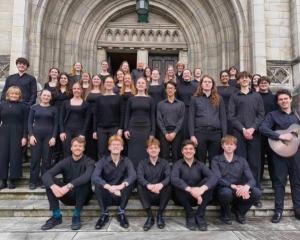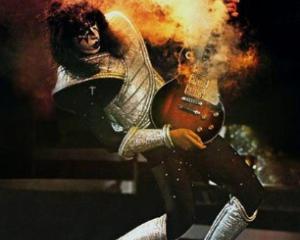
The need to practice and rehearse can sometimes overrule the need for fresh air and exploring, pianist Kathryn Stott says.
''It's a great shame to stay locked in a room, but the dedication needed to keep on top of things means it does have to happen.''
That's particularly the case when Stott has just flown in to perform with an orchestra or chamber orchestra she does not know well.
However, travelling around the world does have its bonuses, such as being able to see how other people live, explore different cultures and landscapes.
''I don't take any of that for granted. I love travelling.
''I'm a born traveller.''
When last in New Zealand, Stott allowed time for a long walk in the Marlborough Sounds, but as she is travelling the country on this visit, time for walks is limited.
She is away from her Manchester home for a month, having first performed in London and then Norway before heading to New Zealand for a series of solo and chamber music concerts with the New Zealand String Quartet.
''I miss my dog. When life consistently takes you away, you do miss home and your own bed.''
Stott has performed previously with the Auckland Philharmonia and at the Nelson Chamber Music Festival.
She first played with the NZSQ at the Australian Festival of Chamber Music in Townsville in 2007 and was invited to play at the Adam Chamber Music Festival in 2005.
''We absolutely loved her playing. She has a intensely singing tone, very beautiful voicing and a virtuoso technique,'' NZSQ viola player Gillian Ansell says.
''Kathryn has a spirited personality and is great fun to be around, so it will be such a treat to be on tour with her for Chamber Music New Zealand. We are so looking forward to it.''
Stott says music has enabled her to reach ''all kinds'' of people she may not have encountered in other circumstances.
''It's brought me to wonderful countries like New Zealand and I've met so many wonderful people through music.''
Playing the piano enabled her to connect with her audience; to have a conversation.
''If I'm playing, it's not one-way traffic. I feel it comes back to me from the audience.''
For Stott, music is about connecting with people.
''It's a very special way of communicating. I'm very fortunate to have that be part of my life.
''It's brought so much to me. I hope I give to other people.''
The benefits were not apparent when she first took up the piano aged 5.
Her mother was a part-time cello teacher, so she grew up with music in the house.
She gravitated towards the piano as there was one in the house.
''I just took to it.''
When she was 8, she went to the specialist Yehudi Menuhin School where she boarded.
''It was intense. Not all the people that went to the school pursued a career in music.''
For her, music school was a wonderful place, although she admits there were ups and downs ''like any vocation. It requires incredible dedication''.
There is a need everyday to work on her skills and a continual striving to improve.
She cannot remember when she realised music was going to be her career.
''I started in music and never really stopped. It wasn't a conscious decision. Just a natural progression.''
Her love of music has led her to organise several music festivals - she is also artistic director of the Australian Festival of Chamber Music - and concert series and she also teaches, holding roles at the Royal Academy of Music in London and the Norwegian Academy of Music in Oslo.
While she is known for her interest in contemporary classical music and is an exponent of Tango and other Latin music, she says she does not have a favourite.
''To be honest, it's pretty much whatever I'm playing at the time. It's a cliche, I know, but it's what I'm immersed in.''
She does admit to a soft spot for French composer Gabriel Faure - she has recorded his complete solo works. That and other French works on piano led to her being appointed Chevalier dans I'Ordre des Arts et Lettres by the French Government.
''I feel like I've lived with him [Faure] forever. I always feel I've come home when I play those pieces on tour.''
So she will feel at home in Dunedin as she is playing Faure during her concert in the city.
Given she performs with orchestras, chamber groups and solo, there is always a different challenge, she says.
''If I'm playing a concerto with an orchestra it has its own challenges. You have to connect with 80 people you might not know and a conductor you might not know and you all have to be on the same page at the same time.
''You might not have that long, maybe hours, for everybody to get into the groove and pull it off.''
Performing solo is different again, she says.
''You have to create everything alone. You don't have other musicians to feed off.''
Whereas chamber performances allow a ''wonderful conversation'' to take place between musicians in the group and the audience.
''It's very intimate in a way you can't possibly have in an orchestra.''
The bonus for this trip to New Zealand is that she is performing all three ways, she says.
''It's what is great about this trip, and I get to see loads travelling around the whole country.''











